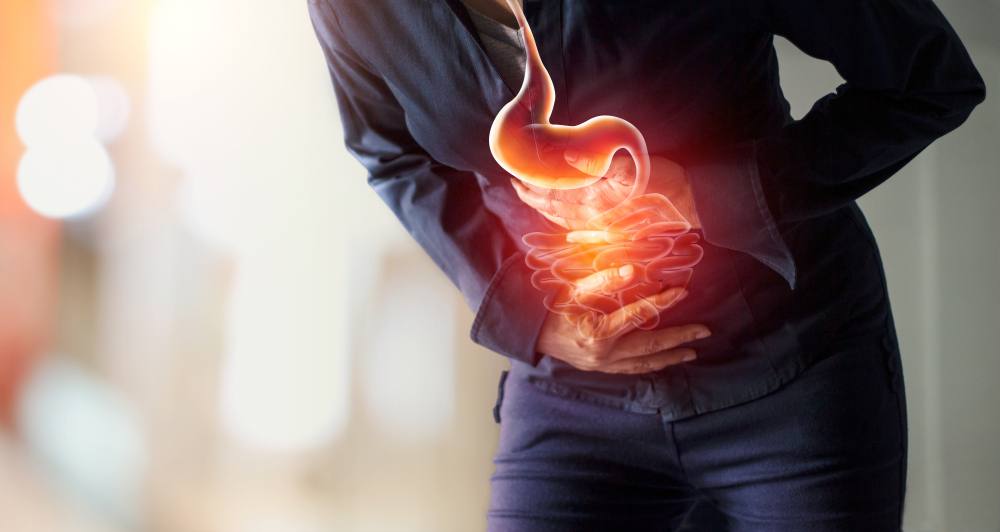Table of Contents
Your stomach is recovered by a protective lining that absorbs acid secretions produced by digestion of foods. Without this constant protection, it is venerable to acids and other irritants capable of impairing its functioning. In spite of constant protection however, the stomach mucosa is sometimes irritated and becomes swollen; this disorder is called gastritis.
Gastritis is a digestive system disorder carecterized by inflammation of the lining of the stomach. Gastritis can be acute or chronic.
Acute gastritis – acute gastritis is a sudden inflammation of the lining of the stomach. It is easier to be treated, and has no complications.
Chronic gastritis – chronic gastritis, in the other hand, is a prolonged inflammation of the stomach lining with risk of complications.
Gastritis Causes
The causes of gastritis are sometimes unknown. Several factors may contribute to the development of gastritis; the most common include:
- Eating Disorders
- Biliary reflux
- Stomach injury
- Nonparasitic antigen
- Autoimmune disorders
- Cancer treatment ( radiation, chemotherapy)
- Excessive caffeine consumption
- Bacterial infection (Helicobacter pylori, Helicobacter)
- Fungal infection
- Poorly cooked seafood
- stress
- Irritating agents such as tobacco and alcohol
- Non-steroidal anti-inflammatory drugs ( NSAID).
Gastritis Symptoms
Gastritis is characterized mainly by:
- Belching
- Pain in the upper abdomen
- Nausea
- Loss of appetite
- Stomach pain
- Anemic (mostly due to gastric hemorrhage)
- Stomach bleeding during vomiting (gastric hemorrhage)
- Heartburn (triggered by certain foods due to Hyperchlorhydria)
Gastritis Diagnosis
 To diagnose gastritis, your physician will do physical examination, and check your medical history. To confirm the diagnosis, certain tests and exams such as gastroscopy, stool culture, and blood test may be recommended.
To diagnose gastritis, your physician will do physical examination, and check your medical history. To confirm the diagnosis, certain tests and exams such as gastroscopy, stool culture, and blood test may be recommended.
Gastroscopy – gastroscopy is a visual exploration of your gastrointestinal organs. This exam serves to highlight lesions in the esophagus, stomach, and duodenum. During the exam, a flexible medical device called endoscope is inserted through your mouth down into your stomach to examine your stomach lining. If necessary, the physician can remove cells or a small piece of tissue for examination (biopsy). This is a painless exam done under local anesthesia. The procedure has no significant complications.
Stool culture – also called fecal culture, stool culture consists of collecting your stool sample to check for presence of pathogenic bacteria (H. pylori in your digestive tract. In the case of gastritis diagnosis, your doctor will check for trace of blood in your stool, which may indicates gastric hemorrhage or colon cancer.
Blood test – in the diagnosis of gastritis, the blood test is done mostly to detect anemia in patients with chronic gastritis that have stomach or abdominal bleeding.
Gastritis Treatment
The treatment of gastritis depends primarily on the factors causing its symptoms and signs. Thus, the treatment of acid reflux involves medications that neutralize acids in the stomach, antacids. Some other medications that are known in USA to counteract stomach acidity include Tums, Rolaids, Gaviscon, Maalox, Mylanta, Alka Seltzer, and Prilosec OTC.
For some people, depending of the severity of the disease, antacids do not work. Acids reducers (H2 blockers) are used to relieve heartburn or indigestion problems, either in short-term or long-term. Some acid reducers that are known to bring relief include Zantac, Prisolec, Pepcid AD, Tagamet, and Axid.
SIDE EFFECTS of those medications may include: Nausea, diarrhea, drowsiness, headache, dizziness, trouble sleeping, breathing Problems, muscle pain, joint pain, blurred vision, itching, rash, and fever.
In gastritis caused by tobacco and alcohol, stop using them can remedy the gastritis without medical treatment. In gastritis caused by food irritants, a change of diet can bring a complete relief. Antibiotics (amoxicillin, clarithromycin) are used for gastritis caused by helicobacter pylori.



